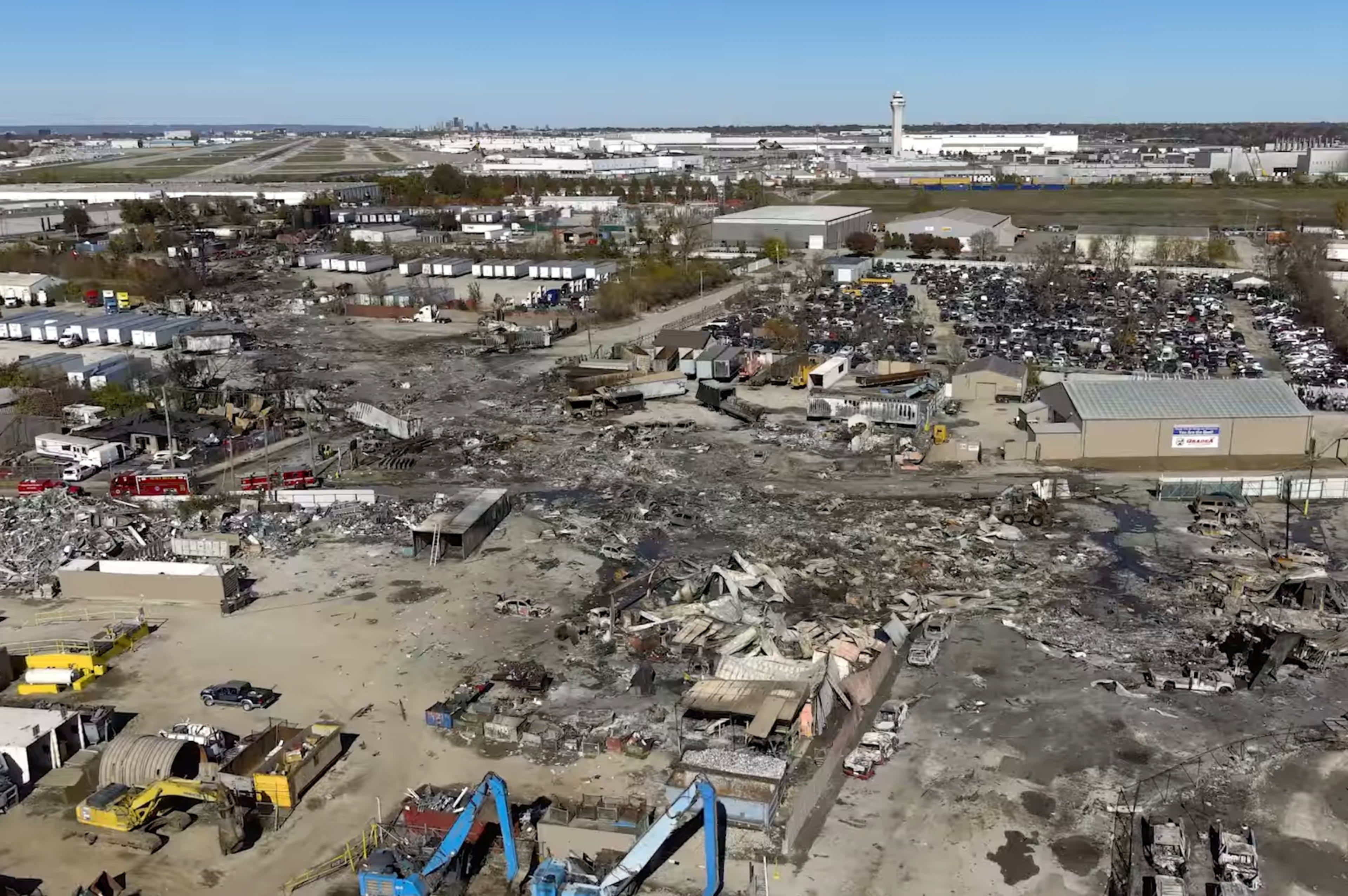Goodwill turns to technology to train welders without getting burned

Through the dark mask of the protective hood, the welder saw sparks shoot in all directions as his torch ramped up to more than 3,000 degrees and the metal rod he held in one hand started to melt into a pool along the crack in the steel plate.
Slowly but steadily, Jamie Hunter guided the tool.
As he slid the torch, maintaining its progress at the precise flow rate needed, the noise was intense in his ears, the relentless crackling and sizzling of the inhuman heat turning the metal into a puddle.
Yet if someone nearby were to suddenly grab the plate, their flesh wouldn’t singe, since it would be cool to the touch. Yes, the sparks were visible, but only inside the protective hood or on a computer screen.
The entire exercise was virtual.
Hunter, 40, pushed back his mask, taking a break from “welding” on a simulator at the Woodstock career center run by Goodwill of North Georgia. “It prepares you. You can feel it in your hands. If you’re off, you can feel it. You get muscle memory, even though it’s virtual.”
Of course, virtual reality isn’t reality at all except in cyberspace. It’s the computer technology that generates sights, sounds and vibrations to enhance amusement park experiences or to let millions of “gamers” each day duel with light sabers, confront dragons or blast their way through hordes of Nazis.
And Goodwill thinks VR can also let workers battle their way to new skills, gaining cyber-abilities that can be replicated in real life as marketable talents that translate to jobs and careers.
“Our mission is to put people to work and we want to reach them with every method we can,” said Jenny Taylor, vice president of career services at Goodwill of North Georgia. “The simulators are an option. It depends on each person.”
The simulators are only part of the organization’s training programs, but they are especially valuable, she said.
Trainees can practice welding for hours without risking third-degree burns or using up thousands of dollars worth of materials. Or they can learn the intricacies of handling a 9,000-pound forklift without the danger of driving through a wall, into a co-worker or over a ledge.
“It was a great investment,” Taylor said.
By November, the Woodstock training center had graduated five Cherokee County residents who used the simulators, she said. “All five have gone to work. All are welders. One is a woman.”
Money for the simulators came to Cherokee County as part of the American Rescue Plan Act in 2021. The county’s commissioners unanimously approved using about $379,000 to buy the equipment for Goodwill from Forklift-Simulator, and from Lincoln Electric for the welding simulators.
Those blue-collar skills are in high demand, said Erika Neldner, communications director for the county.
“These are some of the most expedient paths that open career options,” she said. “Cherokee County is proud to have been part of making possible the new welding and forklift simulators at the Woodstock location.”
Jamie Hunter, who now works in maintenance, has plans for his welding skills. He wants to build a house for his wife, who is disabled, to start a welding program for those incarcerated in Fulton County’s jail, and to be a welder who can get work when he wants it.
Dorien McConnehead, 20, of Alpharetta, has listened to the sizzling and seen the vivid sparks in cyberspace over and over, sometimes for hours.
And he sees himself getting much better, he said.
Now a student at Temple University in Philadelphia, he sees welding first as a part-time job to help pay tuition. He’s on track for a degree in computer science, but he could see being a welder, too. So, he works on arm placement, his overall posture and getting the pace of the work right.
“It teaches you,” he said. “You want to keep yourself stable.”




